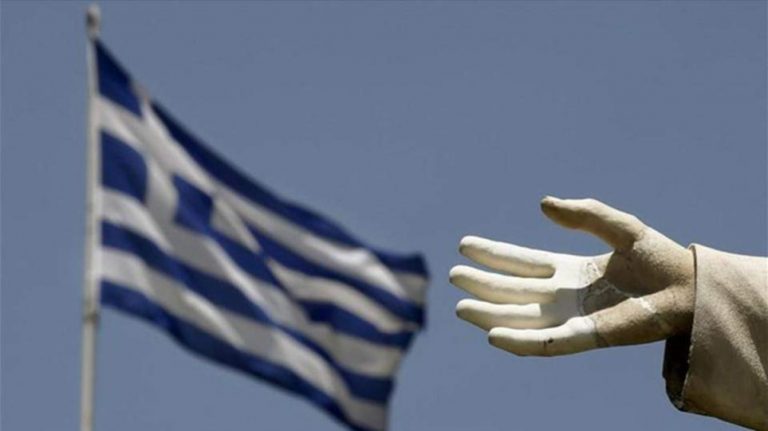The Greek economy will contract at a smaller rate in 2020 compared with the Eurozone average, the Organisation for Economic Cooperation and Development (OECD) said in its semi-annual report on the global economic outlook. This forecast comes in opposition to forecasts made by the European Commission and the International Monetary Fund (one and two months ago).
The Paris-based organization used two scenarios for all countries and economies due to the “unusual degree of uncertainty” and noted that both were equally possible.
Under the first scenario, which envisages that there will not be another outbreak of the coronavirus, the Greek GDP is projected to contract by 8.0 pct this year (-9.1 pct in the Eurozone) and to grow by 4.5 pct in 2021 (6.5 pct in the Eurozone).
Under the second scenario, which envisages a second outbreak of the Covid-19 pandemic by the end of 2020 globally, the Greek economy is projected to contract by 9.8 pct (-11.5 pct in the Eurozone) and to grow by 2.3 pct in 2021 (3.5 pct in the Eurozone). OECD envisages a 6.0 pct global recession this year and a 5.2 pct growth rate in 2021 under the first scenario and a 7.6 pct contraction and a 2.8 pct growth rate under the second scenario.
The Organisation noted that even under the first scenario, several developed economies will have lost the increase recorded in their per capita income for a period of five years.
OECD stressed that Greece was very efficient in limiting the outbreak of the coronavirus in the country and noted that government measures to support households and enterprises will extend to 2021, although it noted that new measures would be necessary in the case of the second scenario. “The coronavirus crisis is an external shock that suspends Greece’s recovery and delays some of the government’s reform efforts, while at the same time it accelerates others,” the OECD said, adding that this strengthens the importance of continuing to seek a multi-year transformational program.
Gov.gr: Three certificates available with just one click
The report noted that the Greek government has presented a clear timetable for the restart of tourism, which could lead to an increase of bookings later in the season, but noted that in the case of a second scenario, a decline in incomes and confidence globally could limit tourist arrivals in 2021. The Organisation recommended that the government should strengthen growth potential in other sectors of the economy.
It added that a decision by the European Central Bank to include Greek bonds in its asset purchase program has helped in the management of funding cost of the Greek state and banks, while it also mentioned the government’s commitment to the “Hercules” plan to reduce non-performing loans.
The OECD also favors a single bankruptcy status and recommends actions to support the education of adults and active employment policies to offer new opportunities to workers. It noted that reduced economic activity and incomes will lower payments of taxes and social insurance contributions, leading to a primary fiscal deficit of 7.7 pct of GDP this year (8.8 pct under the second scenario) and 4.9 pct in 2021 (6.6 pct under the second scenario).
The public debt is projected to reach 196.9 pct of GDP this year (209.3 pct under the second scenario) from 176.5 pct in 2019 and to fall to 190.7 pct in 2021 (204.7 pct under the second scenario).
The unemployment rate is projected to reach 19.4 pct this year (19.6 pct under the second scenario) and to 19.8 pct in 2021 (20.4 pct under the second scenario).
Ask me anything
Explore related questions





